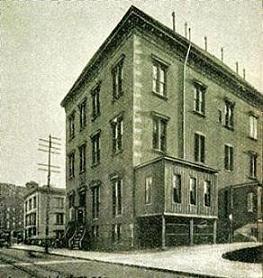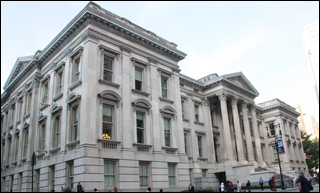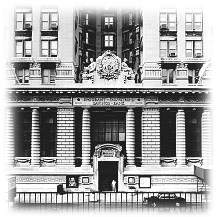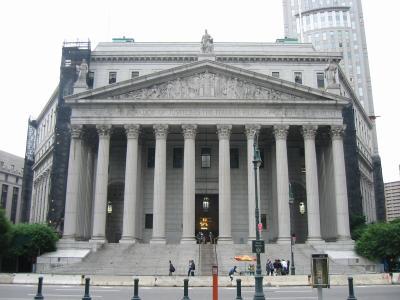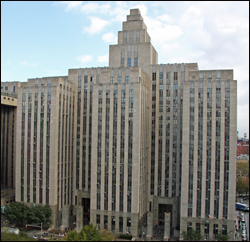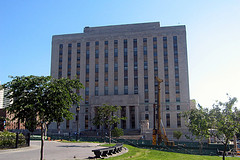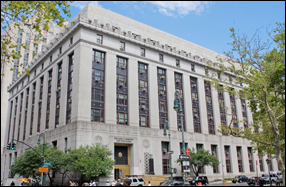October 2009
In January 2009, the Library of Congress (LC) contracted with R2 Consulting LLC (R2) “to investigate and describe current approaches to the creation and distribution of MARC records in US and Canadian libraries”, with a primary focus from a primarily economics perspective on “in effect” mapping “the marketplace for cataloging records, including incentives for and barriers to production” of these records. One especially critical aspect of the project has been to assess the degree to which sources other than LC create records in significant quantities, and to determine the extent to which “all roads lead to DLC/DLC.” From a quick read, it appears that RDA and FRBR may it have been afforded sufficient treatment in this Study. Those interested in this topic will certainly want to re-visit the article by Joni Cassidy and members of her staff, AACR Move Over! Here Comes RDA
The following posting includes an excerpt from the Introduction to the resultant Study issued in October 2009 followed by a link for downloading the entire text of the Study.
From the Introduction:
In January 2009, the Library of Congress (LC) contracted with R2 Consulting LLC (R2) to investigate and describe current approaches to the creation and distribution of MARC records in US and Canadian libraries. The primary focus is on the economics of existing practice, in effect mapping the “marketplace” for cataloging records, including incentives for and barriers to production. The underlying question is whether sufficient cataloging capacity exists in North America, and how that capacity is distributed. This project was designed to be descriptive rather than prescriptive, seeking to understand in detail the ways in which cataloging records are produced and distributed, as well as who bears the costs and who realizes the value. We are not attempting to offer solutions or suggest changes, though some have become obvious as we’ve looked at the data. One especially critical aspect of the project has been to assess the degree to which sources other than LC create records in significant quantities, and to determine the extent to which “all roads lead to DLC/DLC.”
The goal is to achieve the best possible understanding of current circumstances and practices:
What is the overall cataloging capacity in North America?
Where does it reside?
What are the primary distribution pathways and channels for sharing records?
How much redundancy is there?
What can we predict about cataloging capacity over the next 5‐10 years?
What is the estimated need/demand? How does this compare with capacity?
What is the relative importance of authority control to libraries?
What is the current reliance by North American Libraries on LC cataloging?
Over the course of six months, R2 employed a number of information‐gathering techniques. First, we developed a social network called Bibliographic Record Production: www.bibrecordproduction.ning.com which ultimately attracted more than 800 members. This forum was used to develop and refine surveys, to assure that we were asking the right questions, and to enlist proportionate representation from all market segments. We performed a literature search as highlighted in the bibliography. We developed two extensive surveys, one for libraries and one for vendors, and worked diligently to assure the participation of school, public, academic and specialized libraries, and of Canadian as well as US libraries. We took special care with the school and small public library markets, as they are often under‐represented in such studies, and rely almost exclusively on records produced by LC, even if those records reach them through other channels. We also interviewed key people by phone, and made a site visit to the Library of Congress.
The surveys were released in April and completed in May 2009. There are a handful of areas where gaps exist, but the response was proportionate to the size of the respective markets, a factor that gives us confidence in the results. Overall, survey responses were strong, with 972 libraries and 70 vendors participating. Results are summarized in sections II and III of the report; Library and Distributor responses respectively. Note that the survey questions themselves can be found online at:
www.r2test.net/pdfs/Survey Questions ‐ Libraries.pdf www.r2test.net/pdfs/Survey Questions ‐ MARC Systems, Distributors, and Service Providers.pdf
Despite many revisions and our best efforts to achieve clarity in the survey questions, it is apparent that a common understanding does not apply across all market segments. There is, in fact, not really a shared understanding of what constitutes a MARC record, since it can serve purposes other than cataloging. In addition, the distinction between creating a record (which ideally occurs once for each title) and distributing a record (where the same record may be provided to multiple customers) proved confusing to some respondents. This has made quantitative comparisons unreliable, and we have introduced them only in cases where the data are relatively unambiguous.
Our primary observations and conclusions are described in the two subsequent sections of the report:
III. The Conflicted Market IV. Economics of Cataloging Continue reading
 Criminal Law Library Blog
Criminal Law Library Blog


